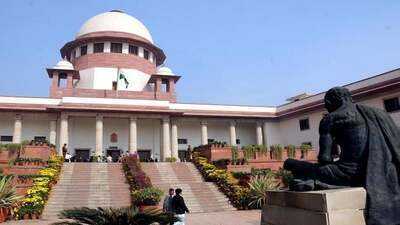
The Supreme Court on 15 April, Tuesday took exception to a bail order of the where it had observed that the and was also responsible for her alleged by the accused.
"There is another order now by another judge. Yes, bail can be granted. But what is this discussion that 'she herself invited trouble", etc'. One has to be careful when saying such things," remarked a bench of justices B.R. Gavai and A.G. Masih, as it dealt with the matter where it had suo moto (on its own motion) stayed the Allahabad High Court judgement holding that grabbing breasts and breaking the pyjama string was not enough for charge of attempt to rape.
The Justice Gavai-led bench said that it will hear the suo moto matter, including the plea of the victim’s mother, after four weeks. Staying the impugned part of the Allahabad HC judgment, the apex court, on 26 March, said that the observations depicted a total lack of sensitivity and an inhumane approach on the part of the author of the judgment.
"We have perused the said judgment and order dated 17.03.2025. We are at pains to say that some of the observations made in the impugned order and particularly in paragraphs 21, 24, and 26 depict a total lack of sensitivity on the part of the author of the judgment," it said.
"But since the observations appearing in paragraphs 21, 24, and 26 are totally unknown to the cannons of law and depict a total insensitive and inhuman approach, we are inclined to stay the said observations," it added.
The Supreme Court has registered a suo moto case titled ‘In Re: Order dated 17.03.2025 passed by the High Court of Judicature at Allahabad in Criminal Revision No. 1449/2024 and ancillary issues’ following a letter from senior advocate Shobha Gupta, who urged the Chief Justice of India (CJI) to take cognisance of the observations made by a single-judge Bench of the Allahabad High Court while modifying a summoning order.
In its decision, a bench of Justice Ram Manohar Narayan Mishra of the Allahabad HC altered the charges against the two accused, who were originally summoned by the trial court for commission of offences under Section 376 IPC (rape) and Section 18 (punishment for attempt to commit an offence) of the Protection of Children from Sexual Offences (POCSO) Act.
Partly allowing the revision plea of the accused persons, Justice Mishra held that they are instead liable to be summoned for a minor offence under Sections 354(b) IPC, i.e. assault or abuse of a woman with intent to disrobing or compelling her to be naked, read with Section 9/10 of the .
According to the prosecution's version, the two accused, namely Pawan and Akash, grabbed the breasts of the victim, and one of them broke the string of her pyjama and tried to drag her beneath the culvert. However, on the intervention of passersby/witnesses, the accused persons fled from the spot, leaving the victim behind.
Saying that prima facie a charge of attempt to rape was not made out against the accused persons, Justice Mishra's bench said: "There is no allegation that the accused tried to commit penetrative sexual assault against the victim. The allegations levelled against the accused Pawan and Akash and facts of the case hardly constitute an offence of attempt to rape in the case."
"In order to bring out a charge of attempt to rape, the prosecution must establish that it had gone beyond the stage of preparation. The difference between preparation and actual attempt to commit an offence consists chiefly in the greater degree of determination," it added.
"There is another order passed by another judge of the same high court," a bench of Justices Gavai and Augustine George Masih observed, in reference to the pyjama string judgement.
Solicitor general Tushar Mehta said how a common man perceived such observations was required to be kept in mind.
The bench adjourned the hearing in the suo motu case for four weeks.
On 26 March, the apex court stayed the high court's 17 March order in the attempt to rape matter, which meant the same couldn't be used in any judicial proceeding for seeking reliefs by the present set of accused or others.
The top court had said some of the observations made in the order reflected total "insensitivity" and "inhuman approach".
It took suo motu cognisance of the matter after it was brought to the notice of Chief Justice of India Sanjiv Khanna.